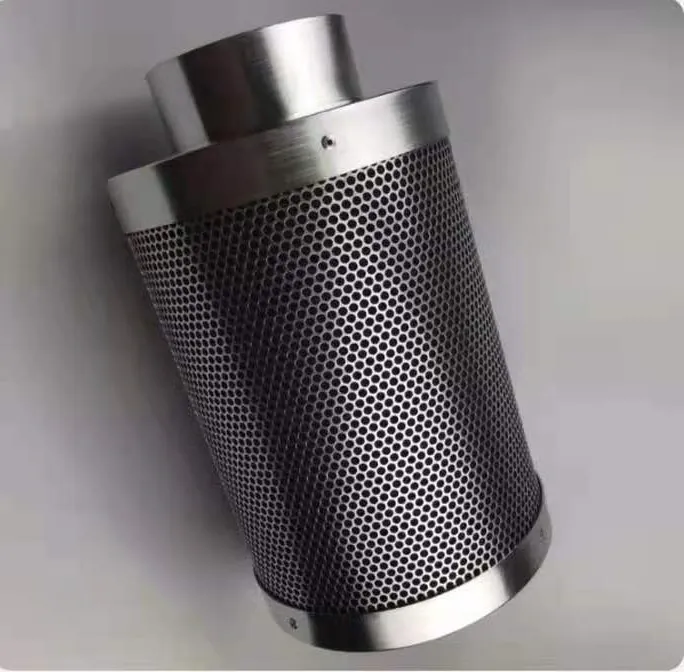 Tel:
+8615930870079
Tel:
+8615930870079
nov . 17, 2024 21:45 Back to list
Understanding the Functionality and Benefits of Vacuum Cartridges in Modern Technology
Understanding Vacuum Cartridges A Deep Dive into Their Importance and Applications
Vacuum cartridges play a critical role in various industrial processes, particularly in filtration and separation technologies. Despite their seemingly straightforward design, these components are essential in ensuring efficiency and effectiveness in many systems. This article explores the principles, applications, benefits, and considerations of vacuum cartridges, highlighting their significance in today’s technological landscape.
What is a Vacuum Cartridge?
A vacuum cartridge is a device designed to operate in a vacuum environment to facilitate processes such as filtration, separation, or storage of materials. These cartridges are typically cylindrical and made from durable materials that can withstand the pressures involved in vacuum systems. They often contain filtering media that varies depending on the application, such as membranes, cloths, or other porous materials.
How Vacuum Cartridges Work
The operation of a vacuum cartridge hinges on the principles of pressure differential. In a vacuum system, air pressure is reduced within a confined space, creating a partially empty environment that facilitates the flow of liquids or gases. When a vacuum is applied, fluids move towards the lower pressure area, passing through the filtering media in the cartridge.
This design enables contaminants, such as particles or microbes, to be trapped, while allowing clean fluid to pass through. The efficiency of the filtration depends largely on the specific design of the cartridge and the properties of the filtering medium used.
Applications of Vacuum Cartridges
Vacuum cartridges find applications across various industries
1. Pharmaceuticals In pharmaceutical manufacturing, vacuum cartridges are used for the filtration of active ingredients, ensuring that products are free from contaminants. They are crucial in maintaining the sterile conditions required in drug production.
2. Food and Beverage Industry For the food and beverage sector, vacuum cartridges are employed in filtration processes to ensure product purity and safety. They help eliminate unwanted particulates and microorganisms, thus extending shelf life and maintaining quality.
3. Wastewater Treatment In wastewater treatment facilities, vacuum cartridges assist in the separation of solids from liquids. This not only aids in cleaning the water before its release back into the environment but also in recovering valuable resources from waste materials.
4. Chemical Processing The chemical industry often uses vacuum cartridges for handling corrosive substances. They are instrumental in preventing contamination and ensuring safe operations in chemically reactive processes.
5. Vacuum Packaging In the realm of packaging, vacuum cartridges are essential for creating a vacuum seal around perishable products, thus inhibiting bacterial growth and decay, and preserving the quality of food.
Benefits of Vacuum Cartridges
vacuum cartridge

The adoption of vacuum cartridges in various applications comes with several benefits
1. Efficiency Vacuum cartridges enable faster filtration rates due to the pressure differential, resulting in shorter processing times.
2. Enhanced Quality Control By effectively removing contaminants, these cartridges help maintain high standards of quality in products.
3. Cost-Effectiveness Although the initial investment in vacuum systems may be high, the long-term savings in operational costs make them a savvy choice.
4. Reusability Many vacuum cartridges can be cleaned and reused, which minimizes waste and contributes to more sustainable practices.
5. Versatility They can handle a wide range of materials and operate in various conditions, making them adaptable to different industrial needs.
Considerations When Using Vacuum Cartridges
While vacuum cartridges offer many advantages, several considerations should be taken into account
1. Proper Selection Choosing the right cartridge material and filtering medium is crucial for optimal performance. Factors like the nature of the substance being filtered and the required filtration accuracy must be considered.
2. Maintenance Regular maintenance is necessary to ensure longevity and efficiency. Clogs and wear can degrade performance over time.
3. Cost of Replacement Although reusable, the cost of replacement cartridges could add up over time, especially in high-demand environments.
4. Compatibility It is essential to ensure that the vacuum cartridge is compatible with the system and other components to avoid operational issues.
Conclusion
Vacuum cartridges are a vital element in many industrial processes, contributing significantly to the efficiency, safety, and quality of various operations. From pharmaceuticals to food processing, their ability to facilitate effective filtration and separation in vacuum environments cannot be overstated. As technology continues to advance, the design and functionality of vacuum cartridges will likely evolve, further enhancing their effectiveness in an expanding range of applications. Understanding their operation and applying best practices can lead to substantial improvements in industrial processes, ultimately benefiting both manufacturers and consumers alike.
-
Types and Applications of Air Filtration CartridgesNewsJul.28,2025
-
The Role of Gas Turbine FiltersNewsJul.28,2025
-
Mastering Air Filter Cartridge UseNewsJul.28,2025
-
Advanced Turbine Filters for Modern Gas TurbinesNewsJul.28,2025
-
Cellulose Air Filter Cartridge Advantages in Dust FiltrationNewsJul.28,2025
-
Cellulose Filters for Air Particle ReductionNewsJul.28,2025

 Email:
Email:





